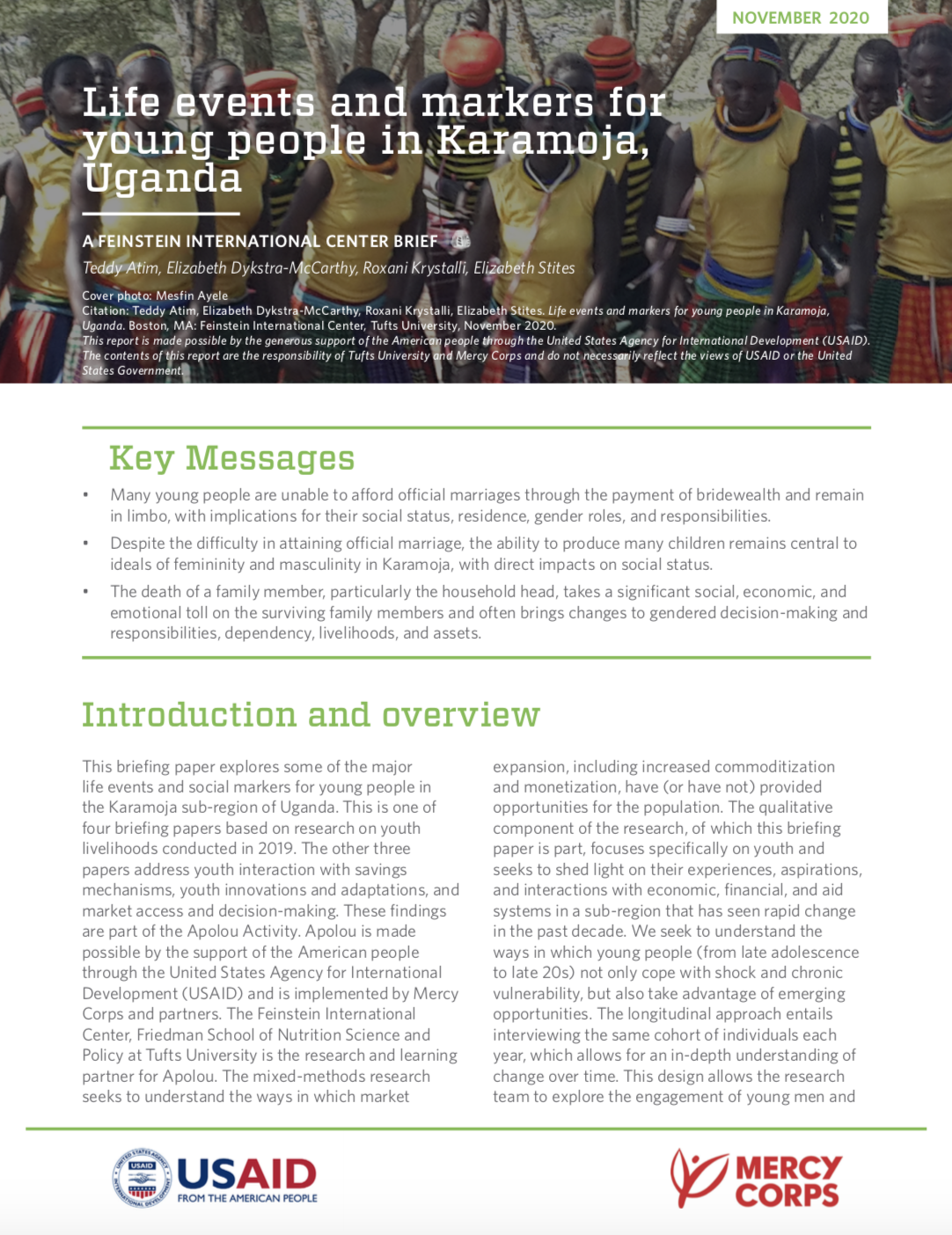This briefing paper explores some of the major life events and social markers for young people in the Karamoja sub-region of Uganda. Many young people in the study population are unable to afford official marriage which occurs through the transfer of bridewealth cattle from the family of the groom to the family of the bride. However, having children remains central to notions of masculinity and femininity in the region and provides a boost in social—if not economic—status. We also examine the experiences of young people in coping with a death in the family, which brings substantial tolls as well as changes in gendered decision-making within the household.
This briefing paper is based on qualitative data collection with young men and women in four districts of the Karamoja sub-region of northeastern Uganda. Collected in late 2019, these data are from the second in a series of four interviews occurring annually with a cohort of approximately 85 young people living in rural areas.
This is one of four briefing papers based on research on youth livelihoods conducted in 2019. The other three papers address youth interaction with savings mechanisms, youth innovations and adaptations, and market access and decision-making. These findings are part of the Apolou Activity. The other briefs are available here.







